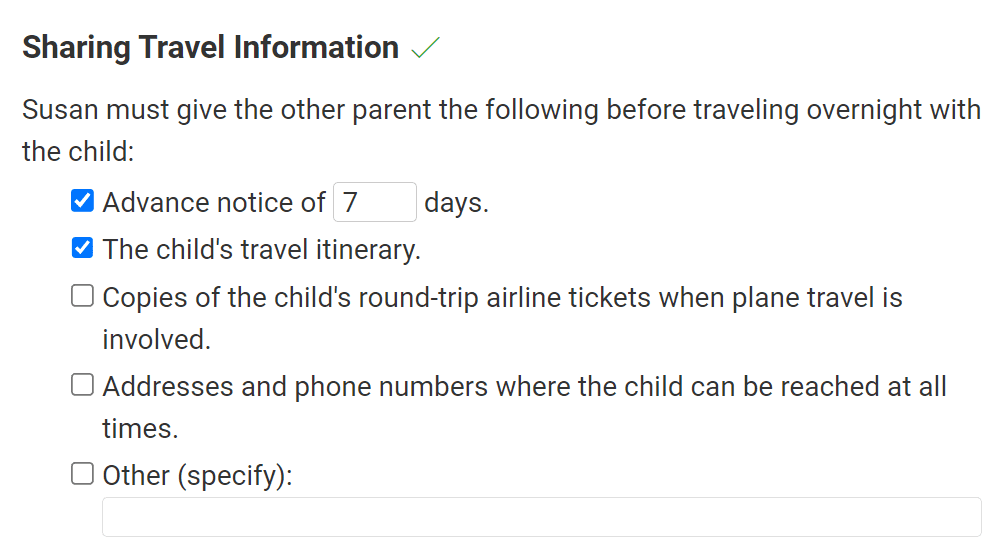Can a Parent Take a Child Out of State Without Consent?
Determining whether you need consent to take your child out of state can be tricky.
There could be serious consequences for taking your child across state lines without consent. To avoid upsetting the other parent or getting in trouble with the law, know what's required of you before you decide to take a vacation or move states.
Figuring out whether you can take your child out of state
Many states have laws regarding out-of-state travel to prevent parental kidnapping. How these rules apply to you depends on:
- Your type of custody
- Whether you are the custodial or noncustodial parent
- Your marital status
Alternatively, the court or parents can specify in a parenting plan whether parents need permission to take the child out of state.
Who needs consent to take the child out of state?
The following people need consent to take their child out of state:
- Noncustodial parents
- Fathers whose paternity the government hasn't recognized
- Parents in active custody cases
- Parents with a court order requiring them to do so
Can a parent take a child out of state with joint custody?
Parents with joint custody can take the child out of state without consent so long as their custody order doesn't forbid it. But they must not get in the way of one another's relationship with the child. For example, if they take the child on a trip, they must be back in time for the other parent's visitation.
Married parents have joint custody of their children. A husband or wife can take the child out of state without permission.
Can a custodial parent take the child out of state without consent?
If you have sole custody, you can take the child out of state without consent, unless your custody order prohibits this. Your trip cannot interfere with the noncustodial parent's time with the child.
Mothers who aren't married when they give birth automatically have sole custody, so they can take the child out of state without the father's permission. This could change once the father establishes paternity and gets a custody order.
A custodial parent who wants to relocate to a different state must give the noncustodial parent written notice of the move and propose a parenting plan. Then the court decides whether to allow the move, or parents can settle the issue through an alternative dispute resolution method.
Getting permission to take your child out of state
Try to get the other parent's written consent before taking the child out of state even if you're not required to. Otherwise, they might use long or frequent trips as a reason to ask the court to change your custody order.
You could create a permission form for parents to fill out before leaving the state with the child. Consider hiring an attorney to draft this. It should cover:
- The travel itinerary
- Who's traveling with the child
- Contact info for the parent and child while they're away
In your parenting plan, you can require both parents to sign the form (possibly in front of a notary) before either one removes the child from the state.
If you think the other parent plans to keep the child from you, you can ask the court for an emergency order. Among other things, it could give the court power to confiscate the child's or parent's passport if that parent tries to take the child out of the country.
Punishments for taking the child without permission
If you defy your court order by taking the child somewhere without permission, you could be held in contempt of court, have to pay fines, lose your parental rights or face jail time.
Parental kidnapping laws are different in each state. Typically a parent must have an active custody order or case to be charged with parental kidnapping, unless they intentionally hide the child from the other parent.
Some countries have laws that require parents arriving at their border with a child to have written permission from the other parent.
Planning ahead
To prevent a return to court, state in your parenting plan whether parents need consent to take the child out of state.
The Custody X Change parenting plan template has you covered with provisions for out-of-area travel and moving. You can specify where parents may take the child and how much notice they must give. Plus, you can create custom provisions.
 You can customize this with Custody X Change.
You can customize this with Custody X Change.
Your provisions and parenting schedules will be organized into a court-ready parenting plan.
Try this with Custody X Change.
It's just one of the ways Custody X Change helps you protect your child and your custodial rights.
